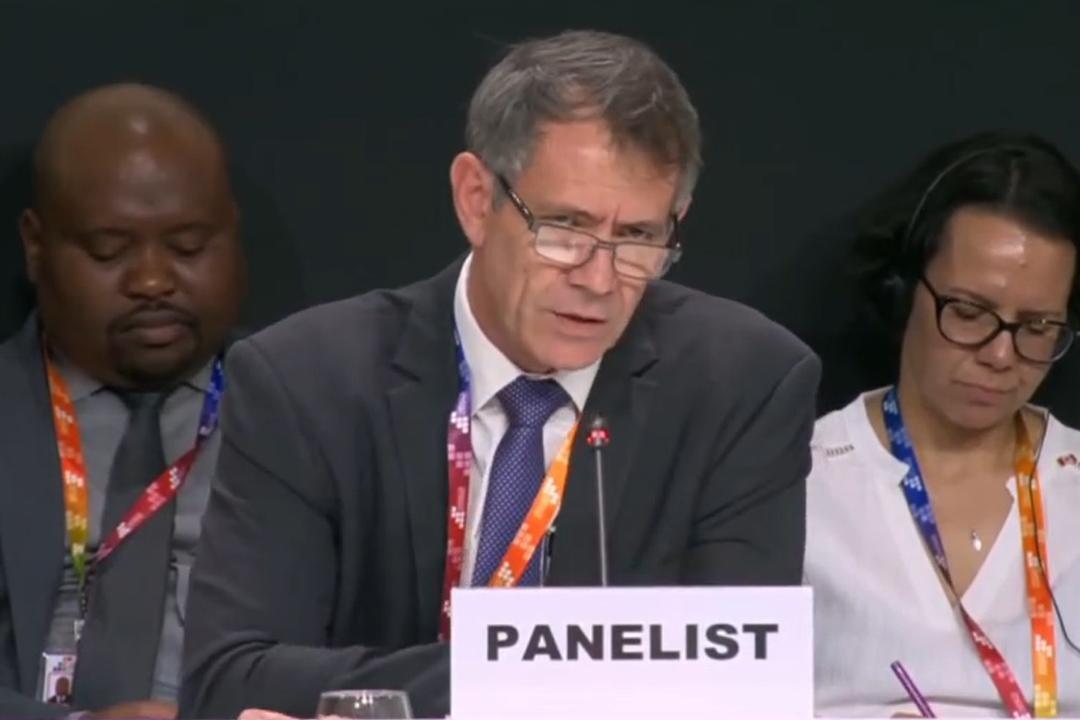Africa-Press – Eswatini. Minister of Finance, Neal Rijkenberg, stood before delegates at the United Nations Multi-Stakeholder Roundtable on Financing for Development and delivered a clear message: “There’s almost nothing more important than growth.”
Speaking on July 1 in Seville, the minister laid bare the economic realities of many developing nations, including Eswatini, and emphasized that without sustainable growth, all development efforts, including the UN’s Sustainable Development Goals – would falter.
“Unless we get growth right in our developing countries, whatever else we’re getting right – SDGs included, it’s unsustainable,” said Rijkenberg. “You’re not going to get that right.”
He described how Eswatini, once grappling with a 7.5% fiscal deficit and sluggish 2% growth over two decades, made bold decisions to reset its economy. Working closely with the IMF and World Bank, the government implemented a tough fiscal consolidation strategy.
“We actually reduced expenditure regardless of inflation and worked very hard to increase revenues,” the minister said. “We managed to get our fiscal deficit down to 2%. That’s when the private sector stood up to the plate.”
The outcome has been nothing short of transformative. Growth rebounded to 5% in 2023, rose to 4.8% in 2024, and is projected to hit 7.9% in 2025. Meanwhile, Eswatini has managed to keep its debt-to-GDP ratio at a healthy 40% and earned a credit rating upgrade from Moody’s, moving from B3 to B2.
But Rijkenberg was quick to highlight the real driver behind this success story.
“It was the private sector that really came to the party,” he said. “With confidence in government doing the right thing from a sustainability point of view, big companies went through aggressive growth.”
The minister also announced the creation of a sovereign wealth fund in Eswatini, which will be capitalized not with cash, but with underutilized national assets. The goal is to attract co-investment and inject energy into key sectors of the economy.
“We don’t have the cash, but we do have assets. We’re going to inject them into the sovereign wealth fund and use it strategically, like venture capital, to crowd in investment,” Rijkenberg explained.
He also urged fellow African governments to take a hard look at their macroeconomic policies and create environments where the private sector feels safe and confident to invest.
“You can’t fund your way out of this crisis with multilateral development bank loans alone,” he warned. “We’re talking about SDGs needing trillions. The World Bank’s IBRD fund is only $330 billion. We need the private sector. And for that, we need growth.”
Rijkenberg’s address resonated with many in attendance, as he offered not only a blueprint for reform but a powerful reminder that growth is not just an economic indicator, it is the lifeline for sustainable development.
“Whatever else you’re trying to fix in your country, if you don’t fix growth first, you’re just moving the deck chairs on the Titanic,” he concluded.
As Eswatini continues its impressive economic trajectory, the message from Seville is clear: bold reforms, private sector partnership, and a relentless focus on growth are not just strategies – they are survival.
For More News And Analysis About Eswatini Follow Africa-Press







